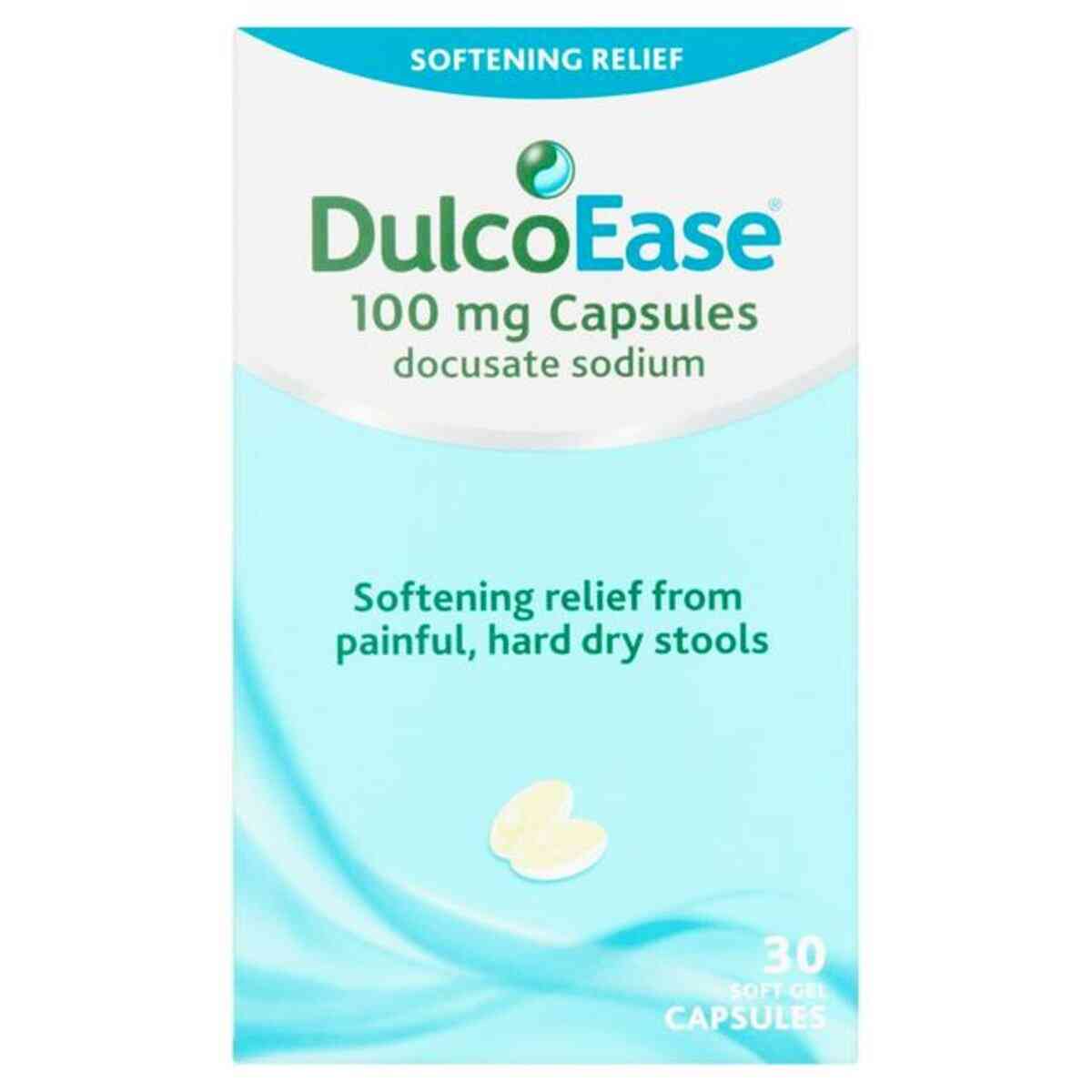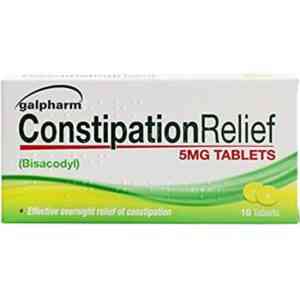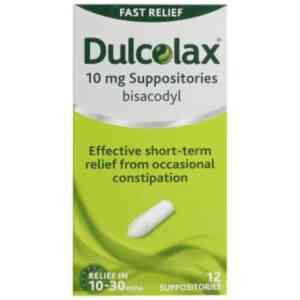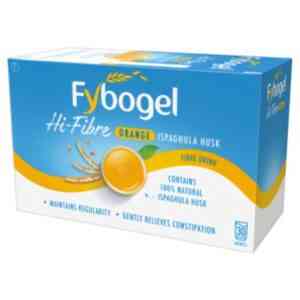Description
Dulcoease 100mg Capsules Stool Softening Relief Capsules, 30 Capsules
DulcoEase 100mg capsules are stool softener Capsules that provide relief when a bowel movement is painful or difficult. It can be used when you have constipation, piles, or anal fissure. It works by helping hard, dry stools soak up natural fluids.
DulcoEase capsules contain the active substance docusate sodium. This medicine is a laxative. It belongs to a group of medicines called ‘stool softeners’.
- DulcoEase is used to treat constipation in adults and children 12 years and over
How DulcoEase works
DulcoEase softens the stools (faeces).
- It does this by increasing the amount of water within the stools (faeces)
- This makes your bowel movements easier
It helps you when:
- You are constipated
- You have piles
- You have a tear in the lining of your anus (anal fissure)
DulcoEase helps to soften hard stools for a comfortable way to go to the loo. It comes in the form of a small convenient soft gel capsule that can be swallowed with water. From the makers of Dulcolax, DulcoEase provides effective relief from the pain and embarrassment of “painful poo syndrome”. DulcoEase stool softener provides relief when a bowel movement is painful or difficult if you are constipated or suffer from piles or anal fissure. DulcoEase softens hard, dry stools by increasing their absorption of natural fluids. Also maybe used before the abdominal X-ray.
DulcoEase capsules work with your body to provide gentle and effective relief from constipation. It is a stool softening laxative that has a dual-action effect whereby it softens and stimulates to keep things moving. They are suitable for long-term use although doctor advice is recommended if experiencing chronic constipation. The softening of the hard dry stools helps reduce straining due to conditions like haemorrhoids or anal fissures. You should feel more comfortable in 1-2 days after taking DulcoEase. Thanks to the nice soft gel capsule format, it is easy to take with you on the go.
What is Constipation?
Constipation is common and it affects people of all ages. You can usually treat it at home with simple changes to your diet and lifestyle.
This page is about constipation in adults. There’s separate information on constipation in babies and children.
It’s likely to be constipation if:
- you have not had a poo at least 3 times during the last week
- the poo is often large and dry, hard or lumpy
- you are straining or in pain when you have a poo
You may also have a stomach ache and feel bloated or sick.
If you’re caring for someone with dementia, constipation may be easily missed. It’s important to be aware of any changes in their behaviour that might mean they are in pain or discomfort, although it’s not always easy.
Constipation in adults has many possible causes. Sometimes there’s no obvious reason.
The most common causes include:
- not eating enough fibre – such as fruit, vegetables and cereals
- not drinking enough fluids
- not moving enough and spending long periods sitting or lying in bed
- being less active and not exercising
- often ignoring the urge to go to the toilet
- changing your diet or daily routine
- a side effect of medicine
- stress, anxiety or depression
Constipation is also common during pregnancy and for 6 weeks after giving birth.
Rarely, constipation may be caused by a medical condition.
Making simple changes to your diet and lifestyle can help treat constipation.
It’s safe to try these simple measures when you’re pregnant.
You may notice a difference within a few days. Sometimes it takes a few weeks before your symptoms improve.
MAKE CHANGES TO YOUR DIET
To make your poo softer and easier to pass:
- drink plenty of fluids and avoid alcohol
- increase the fibre in your diet
- add some wheat bran, oats or linseed to your diet
IMPROVING YOUR TOILET ROUTINE
Keep to a regular time and place and give yourself plenty of time to use the toilet.
Do not delay if you feel the urge to poo.
To make it easier to poo, try resting your feet on a low stool while going to the toilet. If possible, raise your knees above your hips.
CONSIDER INCREASING YOUR ACTIVITY
A daily walk or run can help you poo more regularly.
 +44 (0) 1375 846 316
+44 (0) 1375 846 316




Reviews
There are no reviews yet